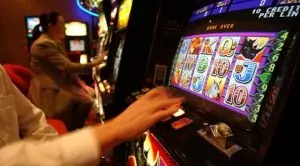 The Liberal government of the Australian state of Tasmania released details on a new tax regime aimed at pokie machines located across pubs and clubs. The new regime will be enforced once the current monopoly of the gambling operator Federal Group comes to an end in 2023. The company is privately owned and managed by the Farrell family. It operates various casino gambling, hospitality, and tourism assets in the Australian island state.
The Liberal government of the Australian state of Tasmania released details on a new tax regime aimed at pokie machines located across pubs and clubs. The new regime will be enforced once the current monopoly of the gambling operator Federal Group comes to an end in 2023. The company is privately owned and managed by the Farrell family. It operates various casino gambling, hospitality, and tourism assets in the Australian island state.
The Tasmanian authorities intend to end this monopoly immediately after the expiry of the Group’s license. In line with the new regime, pubs and clubs will be able to apply for and receive individual licenses that would allow them to operate slot machines, or pokies as Aussies call them, within their premises but without paying the Group.
Pubs and Clubs’ Capital Value Will Grow after the Monopoly Ends
 Benefits await these venues once the monopoly finally ends. For starters, the new regime will finally free the establishments from the burden of paying Federal Group, which currently still assumes the function of a middleman.
Benefits await these venues once the monopoly finally ends. For starters, the new regime will finally free the establishments from the burden of paying Federal Group, which currently still assumes the function of a middleman.
Additionally, their capital value is expected to grow by an average of $1.5 million. In turn, this will enable the venues to retain a minimum of 50% of the pokies losses, which is a 20% increase from the current arrangements.
The Tasmania authorities plan to boost the taxes on pokie machines in hotels, increasing the rates from 25.8% to 33.9%. The state government intends to introduce an additional 5% levy for the support of the local community, which will result in a total effective tax rate of 38.9%.
These rates come very near to the 39% Tasmanian hotels said they were willing to contribute in a parliamentary submission. In addition, hotels who house such machines will have to pay annual fees ranging from $1,000 to $2,500 for the license of each pokie.
The New Tax Regime Will Not Be as Beneficial to Tasmanian Taxpayers
 Author and historian James Boyce, who had penned a book on Tasmanian history, also weighed in on the matter. According to Mr Boyce, the state authorities are foolish to believe the locals would think it a coincidence that the new rates are nearly the same as those previously suggested by hotel operators.
Author and historian James Boyce, who had penned a book on Tasmanian history, also weighed in on the matter. According to Mr Boyce, the state authorities are foolish to believe the locals would think it a coincidence that the new rates are nearly the same as those previously suggested by hotel operators.
The authorities also seemed to hint they do not plan tenders for the pokie licenses. Instead, the existing 95 establishments would be able to retain the 2,300 pokies they presently own.
However, industry experts warn that local taxpayers will not benefit nearly as much from this tax regime as they would if the Tasmanian government adopted the upfront licensing auction approach the state of Victoria implemented back in 2012.
Gambling expert and Senior Lecturer at the Melbourne-based Monash University Dr Charles Livingstone also expressed his opinion on the matter. He believes Tasmanian hotels should be very pleased by the new regime because, in essence, it gives them exactly what they initially had asked for.
Dr Livingston opined that the Tasmanian authorities would collect between $20,000 and $50,000 from annual licensing fees over a license period of twenty years. This is significantly less than the returns the government would have realized if it opened the market for tenders. Livingston estimates the latter scenario would have resulted in minimum returns of $50,000.
Not Everyone Is Happy with the New Tax Regime
 The new tax and licensing regime after 2023 was among the central issues surrounding the state elections back in 2018. At the time, the Labour Party partially attributed its loss to an industry-funded campaign, which allegedly aimed to eradicate pokie machines from the premises of pubs and clubs.
The new tax and licensing regime after 2023 was among the central issues surrounding the state elections back in 2018. At the time, the Labour Party partially attributed its loss to an industry-funded campaign, which allegedly aimed to eradicate pokie machines from the premises of pubs and clubs.
The new tax regime evoked mixed feedback. Peter Gutwein, who has been a Minister of the Tasmanian House of Assembly since the year 2002, thinks the new tax framework will bring in more revenue for the state government, the local pubs, and clubs. This would allow them to pour more capital into their businesses, which, in turn, would result in higher employment rates for Tasmanians.
Meanwhile, Cassandra O’Connor, Green member of the state’s House of Assembly, spoke against the new tax system. O’Connor described it as “a toxic sweetheart deal”, explaining the Tasmania government was enforcing it because of its election policies.
She warned this framework could cause significant damages to Tasmanian society as well as to the local economy during the twenty-year licensing period.
The Federal Group Monopoly Started Back in 1968
 The Federal Group pokie monopoly in Tasmania started over fifty years ago when a slim majority of the locals voted in favour of what was to become the country’s first legal casino. The idea again evoked mixed opinions, with some Tasmanians arguing against the casino while others embracing it as a major tourist attraction.
The Federal Group pokie monopoly in Tasmania started over fifty years ago when a slim majority of the locals voted in favour of what was to become the country’s first legal casino. The idea again evoked mixed opinions, with some Tasmanians arguing against the casino while others embracing it as a major tourist attraction.
The second group prevailed with a small majority of 53%. Thus, the Federal Group-owned Wrest Point Hotel became the Wrest Point Hotel & Casino in 1973. Several years later, the family company launched another gambling venue in Launceston. Many more casinos opened doors and the Group received exclusive rights over Tasmania’s gambling sector.
Deeds of agreement were signed in 1993 and 2003, guaranteeing the Federal Group monopoly would continue until at least 2023. Neither deed of agreement was subject to an open tender.
With that said, state authorities confirmed there are still ongoing discussions with the company. Federal Group insists on compensation in the form of lower taxes. The Group demands that the tax rates for the pokies it operates in two of its casino venues to be reduced from 25.8% to 10.9%.
- Author


